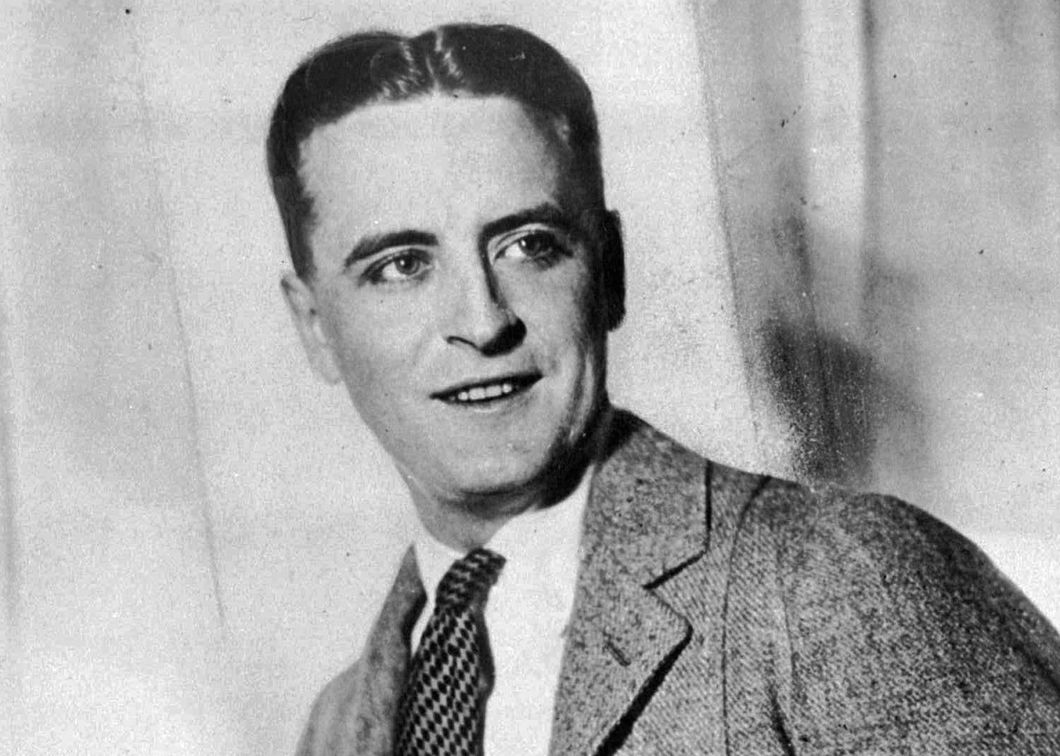With the publishing of his novel "This Side of Paradise" in 1920, F. Scott Fitzgerald immediately rose to the top of the literary world, becoming one of the primary storytelling virtuoso's of the Jazz Age -- a term he coined himself to define an era in American History characterized by an excess of money and alcohol. For a while, it seemed like America would never sober up, but then the Depression struck. And with one parched kiss the money, the alcohol, evaporated, along with Fitzgerald's career.
By the time the author passed away in 1940, all his books were out of print, and despite being hired as a screenwriter in Hollywood, only once did his name ever appear in a movie credit. Plummeting from the heights of renown into the destitute crevices and valleys of the forgotten, Fitzgerald's name seemed destined to remain as one omitted from the pages of history, but it was not so.
Rediscovered in the 1950's, F. Scott Fitzgerald to this day is now regarded as one of the most important figures in the canon of American Literature. Revered on a level parallel to that of Ernest Hemingway and William Faulkner, scholars and critics herald Fitzgerald as one of the foremost pioneers of Literary Modernism, and his novel "The Great Gatsby" has been dubbed "The Great American Novel" -- the single highest praise set aside for any book composed by an author tracing origins to the United States. Here are five quotes that were taken from Fitzgerald's work that cement his status as a literary icon, and an enduring inspiration to aspiring writers in the contemporary era:
1. "I don't want to repeat my innocence. I want the pleasure of losing it again."
A line delivered by Rosalind Connage, the love interest of Amory Blaine in "This Side of Paradise", Fitzgerald captures the general attitude of Americans towards the notion of marriage and love in the 1920s. An age of cynicism directed towards old Victorian beliefs and institutions, many women, known as "flappers", openly flaunted their sexuality, and embraced a more promiscuous lifestyle driven by the impulse of carnal desires.
2. “Things are sweeter when they're lost. I know--because once I wanted something and got it. It was the only thing I ever wanted badly, Dot, and when I got it it turned to dust in my hand.”
Spoken by Anthony Patch in the midst of carrying out an affair with his mistress Dot in "The Beautiful and Damned", this dialogue manifests as one of many of Fitzgerald's interrogations of materialism, and how it was a bedrock of American Culture then as it continues to be now. Suggesting that a particular desire for something we seek to possess is only as finite as the money we pay to attain it.
3. "There are only the pursued, the pursuing, the busy and the tired."
One of many of Fitzgerald's most eloquent lines sown into Nick Carraway's inner monologue in "The Great Gatsby", this observation is a poetic dissection of the American Dream, and how it continues to remain a harrowing nightmare for those who seek to obtain it. The author argues such a machination can never be fulfilled, no matter how hard one works, and leaves him/her even more broken when the dream fades.
4. “Let us learn to show our friendship for a man when he is alive and not after he is dead.”
Yet another line from "The Great Gatsby", this quote was delivered by Meyer Wolfsheim to Nick Carraway when the latter entreats the former to attend Gatsby's funeral. Although Wolfsheim refuses in moment of sagacious irony, Fitzgerald reminds us that the true value of friendship is not the amount of money it makes you, but the relationship that is forged in such an association. Something that withstands the test of time longer than any bank account -- no matter its size.
5. “It eluded us then, but that’s no matter—tomorrow we will run faster, stretch out our arms farther. . . . And then one fine morning—So we beat on, boats against the current, borne back ceaselessly into the past.”
"The Great Gatsby" dominates this list for the simple fact that its great. A story that begins drenched beneath champagne glittering with the highest, brightest, and most ecstatic of any hope one can have, it ultimately ends having descended into a gulf echoing with eloquent, yet tortured despair. This final line in the book sticks with many readers because it captures with such compassionate, haunting sadness, America's obsession with a perceived past that no longer exists, and never existed, to begin with. And bodes as a note of caution that should we continue to stare at the cover of yesterday news, that's exactly where the present will put us. On the cover of yesterday's news.
Although F. Scott Fitzgerald has long past back into a past where all memories ceaselessly pass further into, his books, his words remain. To enthrall, to remind, and to guide us. Through a past wrought from great beauty and ruin. And into a future where an even greater, brighter beauty springs from places long crumbled and broken. Even as they must remain longed for.
- F. Scott Fitzgerald and "The Love of The Last Tycoon," or "Stahr: A ... ›
- 'Last Tycoon' Review: Amazon Show Is a Bittersweet Homage to ... ›
- F. Scott and Zelda Fitzgerald ›
- 10 Roaring Facts About Zelda Fitzgerald | Mental Floss ›
- The Married Couple Behind “Tender Is the Night” | The New Yorker ›
- F. Scott Fitzgerald - The New York Times ›
- 10 Things You May Not Know About F. Scott Fitzgerald - HISTORY ›















